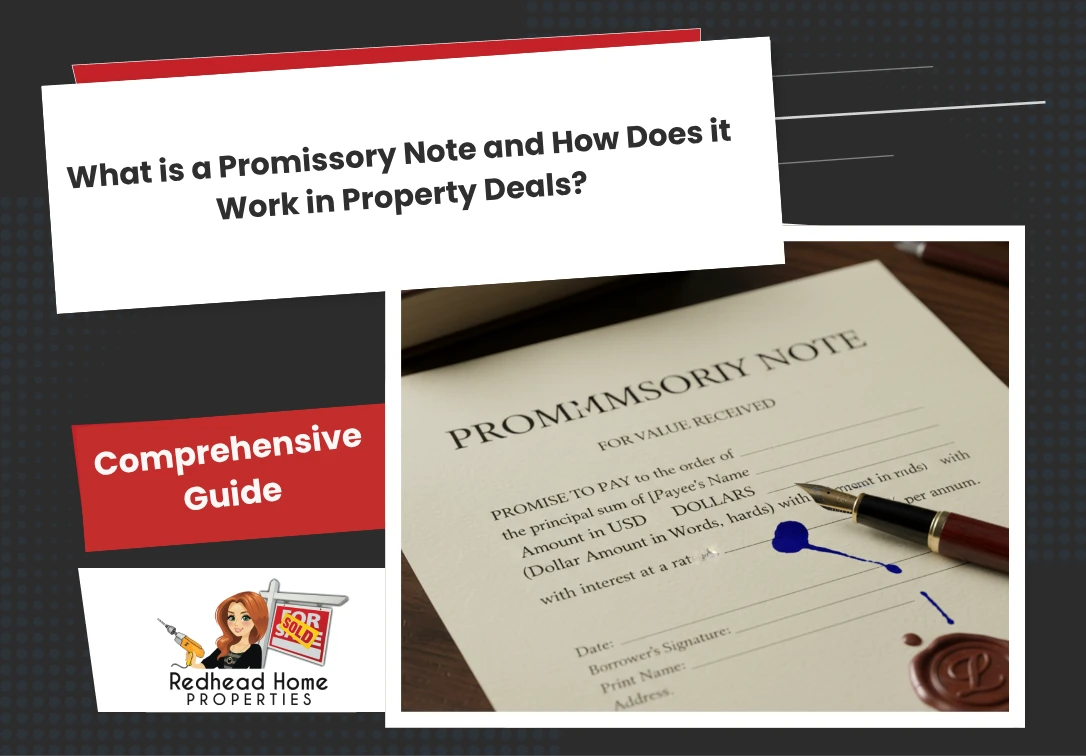
Buying a house or any other property is a daunting journey for salaried or low-income individuals. The expense of rent, children education, utilities, and healthcare make it difficult to spare money and purchase a property which one could call “home.” For these individuals, purchasing a home feel like a challenging task, leading them to explore alternatives like loans or mortgages.
Property investors are also no different. They also face situations where they find a perfect property for the investment but unfortunately, they don’t have enough money to purchase it. They approach friends or other investors to borrow loans that help them buy a property. So, whenever people handle a loan transaction, a question is normally asked: what is a promissory note and how does it work in property deals?
In this blog, you’ll explore the definition, purpose, and legal aspects of promissory notes and discover how does it play a vital role in real estate deals.
Need guidance to buy or sell properties? Contact Redhead Home Properties to explore affordable housing options and get personalized selling advice.
In simple terms, a promissory note is a written pact that a borrower makes to pay the lender a specific amount of money, either on a set date or over time, mostly with interest. Let’s make it clear by a simple example.
Suppose you borrow $60,000 from your friend David to buy a car.

When you don’t have enough money to buy a house, you visit banking institutions to learn about their loan products. You choose a plan for yourself and then agree to pay back the amount as per their defined terms.
When a buyer obtains a mortgage loan from a bank to purchase a property, they need to sign two key documents: promissory note and mortgage or deed of trust.
A promissory note is the promise to repay the loan, including terms and conditions. However, mortgage or deed of trust gives the lender the right to confiscate the property if borrower is unable to pay back the loan.
You want to buy a $200,000 house and the bank lends you $140,000.
Have you ever witnessed housing schemes which offer fully developed homes on installment? This type of financing is similar where the seller acts as a bank and offers an installment plan, allowing you to pay the amount over a certain period. In such cases, you need to pay some amount upfront. The seller allows you to pay the rest of the amount in easy installments.
The seller or housing agent is selling a house for $200,000. The buyer pays $50,000 down payment and signs a promissory note to pay the remaining $150,000 over 5 years with 4% interest.
Sometimes investors are short of money, and they borrow it from other investors to buy or renovate a property.
An investor lends $50,000 to another investor for a year at 10% interest.
The promissory note contains the complete details of the loan that includes:
A promissory note is a legally binding written promise for debt repayment. It is the evidence of the debt and provides legal recourse for the lender in case the borrower is unable to pay back. Here are some of the legal aspects which you need to know:
Important Tip: You need not write vague terms, never include complex details, avoid unsecured notes, as well as ensure that terms of promissory note are fully compliant with specific laws of the state.
There are several benefits of writing a promissory note which are as follows:
Still confused? Reach out to Redhead Home Properties, as our expert team is ready to guide you through writing promissory notes and handling property transactions with confidence.
Here we are with the same question: what is a promissory note? Remember, it’s a legally binding written promise stating that the borrower will pay back the loan amount plus interest rate by a defined time. It gives the lender legal protection and mitigates the risk of the borrower not paying the full amount that was agreed to by both parties.
However, if you are a first timer you should consult the real estate experts, such as Redhead Home Properties, to avoid issues associated with promissory notes.
A promissory note lacks the legal framework of more formal loan agreements which are required for financial dealings. However, if it is written as per law and with clarity, it could serve as evidence to contest your case in court.
The written form of promissory notes is much more powerful compared to the verbal form. It gives the lender the right to take legal action against the borrower who is unable to pay back debt.
The validity of a promissory note depends on which state you live in and remains tied to the statutes of limitations for debt collection. In California and Texas, the validity period is 4 years from the date of default for written contracts, while in New York the limit is 6 years and Ohio, 8 years.
I'm Zoey Wilson. I am a professional content writer with 5+ years of experience creating research-based, informative, and explicit content to help readers understand the topic, form opinions, and implement processes. My content work combines deep market knowledge and a practical approach, giving you a real picture of today's industry landscape with reliable insights.